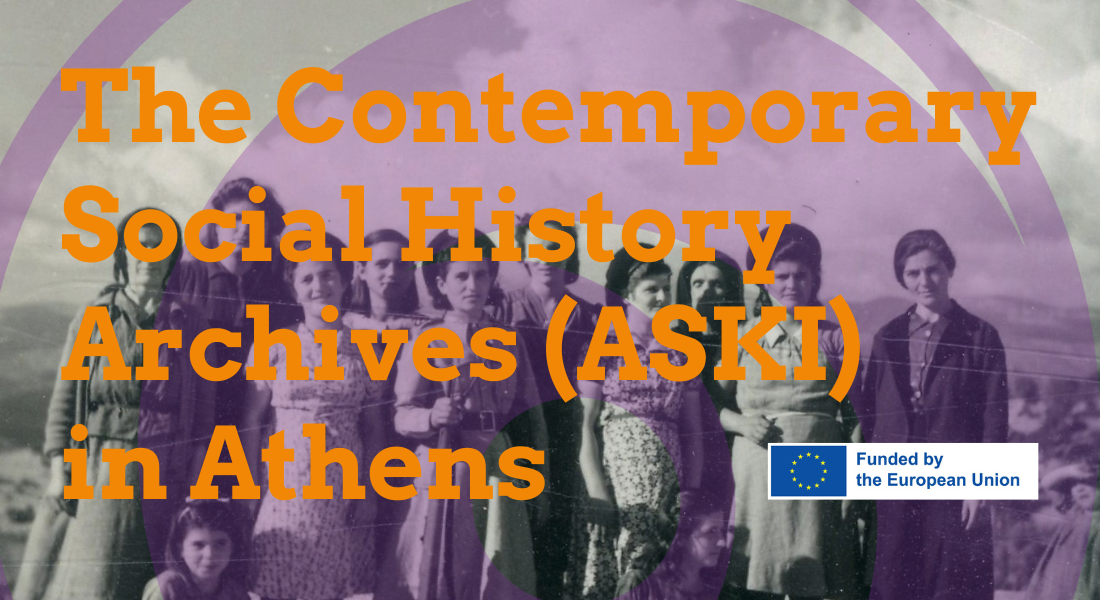
25/11/2024
This week, we invite you to discover another inspiring practice of GLAMs operating as commons. This case exemplifies the significance of community engagement, volunteerism, and the preservation of cultural and historical resources. It shares a commitment to creating and sustaining accessible spaces for knowledge-sharing and cultural enrichment, often adapting to evolving circumstances and community needs.
We want to learn from your experiences.
Overcoming financial constraints, addressing community engagement issues, or finding innovative ways to ensure sustainability, what are your success stories? How these obstacles can be surmounted? We invite you to share valuable insights and best practices, and to offer practical guidance for those looking to embark on similar initiatives.
Case #2: The Contemporary Social History Archives (ASKI) in Athens by Mina Dragouni and Dimitris Pettas
The Contemporary Social History Archives (Αρχεία Σύγχρονης Κοινωνικής Ιστορίας – henceforth, ASKI) was established in 1992 as a civic non-profit organisation based in Athens, to preserve the history and memory of the Greek leftist political and social movements. It brings together a community of experts, who share an interest in the genealogy and biography of the Greek New Left.
The ASKI community (around 70 members) consists of historians and other scholars across the humanities and social sciences, a small team of paid staff (around 10) and an affiliated group of ‘friends’ (around 250).
ASKI holds a rich collection of archives (about 5 million files), which are open to the public. These include, among others, the records of political parties of the Greek Left, official reports documenting significant ‘chapters’ of recent national history (e.g. Resistance to Axis Occupation during WWII, Civil War 1946-49), personal archives and a collection that chronicles social movements, grassroots organisations and ethnic minorities in Greece in the post-WWII era (through oral testaments, photographs etc.). Around these archival collections, ASKI designs and delivers a rich programme of activities for the general public and audiences, including publications (books, periodicals), radio shows, historic walking tours, conferences and public talks.
ASKI provides free access to its archives and library. No attendance charges apply to its public engagement activities (e.g. walking tours) and other public events, with the exception of ASKI’s periodical sold at a small fee.
ASKI receives no direct state funding (e.g. through the Ministry of Culture) while a considerable amount of its operation costs (i.e. staff salaries and buildings’ maintenance) is covered through funds channelled by SYRIZA opposition political party.
ASKI cherishes openness and citizens’ access to history as a public good. Its work promotes historical awareness and the collective memories of marginalised social, political and ethnic groups (in a way, contributing to social justice and diversity). ASKI is also tied to the New Left and its values/beliefs.